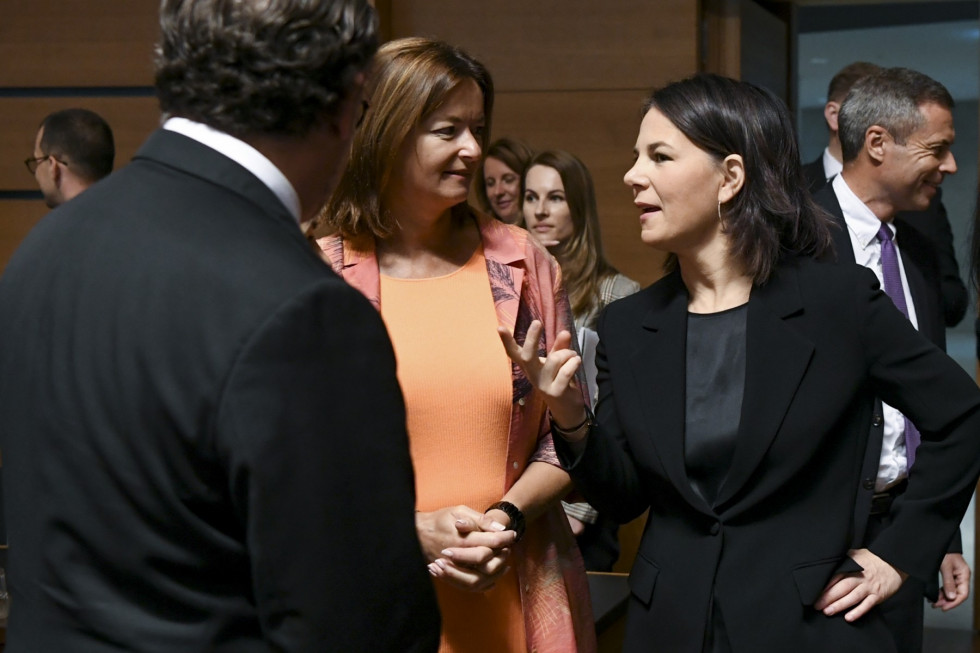EU Foreign Affairs Council on assistance to Ukraine and strengthening relations with Latin America and the Caribbean

Minister Fajon with German Minister of Foreign Affairs Baerbock | Author EU
Minister Fajon stressed that Slovenia, as a newly elected member of the UN Security Council, is following the war in Ukraine very carefully. “Despite the worrying developments in Russia, which show how dangerous the war is for the whole world, we must remain focused on the aggression and continue helping Ukraine, which includes increasing funding under the European Peace Facility. We must do everything in our power to achieve a just peace. We need to strengthen security at the Zaporizhzhia Nuclear Power Plant due to the escalating tensions, and ensure that those responsible are held accountable for the crimes committed in Ukraine,” said the minister. She also presented to the ministers the successful outcome of the MLA Diplomatic Conference on the prosecution of the most serious crimes, which was held in Ljubljana in May 2023 and ended with the signing of the Ljubljana–Hague Convention.
In their discussion on Ukraine, the ministers were also joined by Ukraine’s Minister of Foreign Affairs Dmytro Kuleba, who spoke about the current situation in the country and the dimensions of the Russian aggression. The council members assured him of their continued support and underlined that President Zelenskyy’s peace plan had broad international backing.
In the discussion on relations between the EU and the LAC region, Minister Fajon emphasised: “The EU must listen and hear the expectations of the LAC countries and become their true friend. Slovenia is working hard to strengthen political dialogue, including with smaller countries, and to initiate concrete action in fields of common interest, such as artificial intelligence and the green agenda, with a focus on social inclusion and human development.” In this context, she mentioned Slovenia’s initiative to form a partnership between the EU and the LAC region for responsible artificial intelligence. The ministers also talked about political and trade cooperation and the upcoming EU–Community of Latin American and Caribbean States (CELAC) Summit, set to be held in Brussels on 17 and 18 July 2023.
In the discussion on current affairs, Minister Fajon focused on the Western Balkans region and said that “as a strong supporter of EU enlargement to the Western Balkans, Slovenia is closely following all developments in the region. We are deeply concerned about the deterioration of relations between Serbia and Kosovo. I would like to call upon both countries to calm the situation and ensure people’s safety. It is imperative that Kosovo hold another election in the north of the country. I applaud Serbia's release of the three Kosovars, which is a positive step, hopefully to be followed by similar ones. With a credible enlargement policy, the EU must restore trust, especially of young people, in the integration process. People need to feel that the path towards the EU is the way to improve their prosperity and security.”
Digital diplomacy was also on the FAC agenda. Minister Fajon stressed the importance of a continued active role of European digital diplomacy, while advocating a common European approach and supporting strategic partnerships and cooperation between states. “Slovenia is committed to the development of new technologies, which will be founded on respect for human rights and the rule of law,” she said. Since digital diplomacy is closely linked to cybersecurity, she also presented the cyber centre in the Western Balkans, which is a joint project of Slovenia and France.
The ministers also adopted the 11th package of restrictive measures against Russia and a new package of restrictive measures against Iran.

